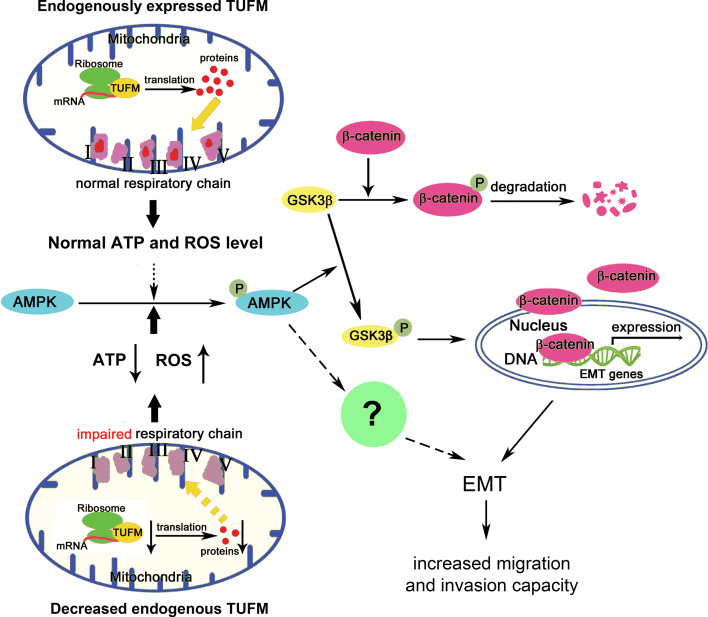Fig. 8.
Schematic illustrations of the findings of this study. Endogenous or basal TUFM expression is essential for normal mitochondria function, including levels of ATP and ROS. Reduced TUFM expression in lung cancer cells causes a decrease in mtDNA translation, leading to dysfunction of the mitochondrial respiratory chain. Mitochondrial dysfunction induces cellular stresses such as decreased ATP production and increased ROS level and the subsequent activation of AMPK, which phosphorylates and thus inactivates GSK3β. GSK3β inactivation reduces the phosphorylation and degradation of β-catenin, thereby increasing levels of cytosolic β-catenin and its nuclear translocation, which results in β-catenin-mediated gene expression and EMT. In MCF7 breast cancer cells, repression of mitochondrial gene expression activates AMPK, which is important for EMT induction as reported in other studies. Thus, decreased TUFM expression may also activate AMPK, which further promotes EMT through a somewhat different mechanism

